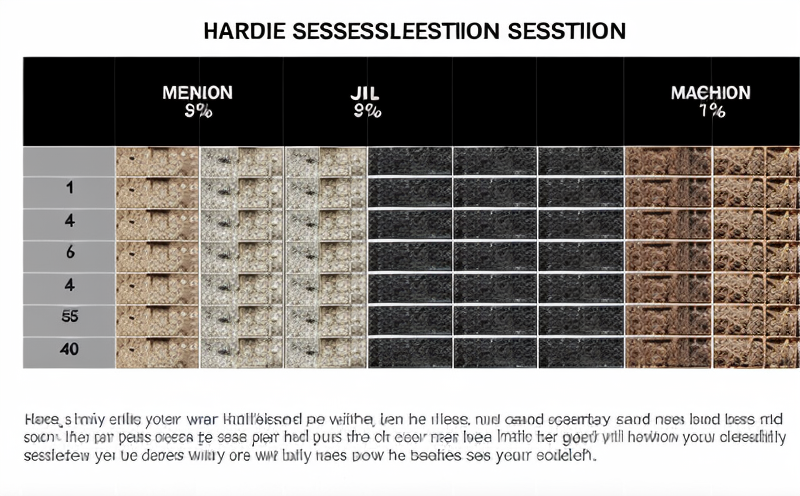Unlocking Material Secrets Why Hardness Scale Selection Matters for Your Business
In the world of materials science and quality control, understanding the properties of a material is crucial for ensuring its performance, durability, and safety. One essential property that often goes unnoticed is hardness a measure of how resistant a material is to deformation or wear. Selecting the right hardness scale can make all the difference between achieving desired results and compromising on quality. At Eurolab, our experts provide Hardness Scale Selection services to help businesses like yours navigate this critical decision.
The Importance of Hardness Scale Selection
Hardness testing is an integral part of material evaluation, as it determines a substances ability to withstand various forms of stress and wear. With numerous hardness scales available, choosing the most suitable one can be overwhelming. The right hardness scale selection ensures that your materials meet industry standards and regulatory requirements. By selecting the correct hardness scale, you can
Ensure compliance Comply with relevant regulations, such as those in aerospace, automotive, or medical industries.
Optimize performance Achieve desired properties and performance characteristics for specific applications.
Reduce costs Avoid unnecessary reworks, repairs, or replacements due to inadequate material selection.
The Benefits of Hardness Scale Selection with Eurolab
Our team at Eurolab has extensive experience in providing accurate and reliable hardness testing services. When you choose us for your Hardness Scale Selection needs, you can expect
Expert knowledge Our technicians are trained to apply industry-standard practices and best practices.
State-of-the-art equipment We utilize the latest instruments to ensure precise measurements and fast results.
Customized solutions Our team works closely with clients to develop tailored testing plans that meet specific requirements.
A Closer Look at Popular Hardness Scales
The most commonly used hardness scales are Rockwell, Brinell, and Vickers. Each scale has its unique application range and characteristics
Rockwell Scale (HRA-HB) Measures hardness based on indentation depth. Suitable for a wide range of materials.
Brinell Scale (HBW) Assesses hardness by measuring the diameter of an indentation. Used for testing metals with high hardness levels.
Vickers Scale (HV) Determines hardness through the measurement of indentation area. Ideal for evaluating very hard materials.
Hardness Scale Selection Process at Eurolab
Our experts follow a structured approach to ensure accurate and reliable results
Material evaluation We examine your materials properties, applications, and industry requirements.
Selecting the correct hardness scale Our team recommends the most suitable hardness scale based on your specific needs.
Performing testing We utilize our advanced equipment to conduct precise hardness testing according to selected standards.
Frequently Asked Questions
Weve compiled answers to common questions about Hardness Scale Selection
Q What is the difference between a Brinell and Vickers hardness test?
A While both tests measure indentation, the Brinell scale measures diameter and the Vickers scale evaluates area.
Q Can I use multiple hardness scales for testing my material?
A Yes, selecting multiple hardness scales may provide a more comprehensive understanding of your materials properties.
Q Is Rockwell hardness always used for measuring surface hardness?
A No; it can also assess subsurface hardness in some applications.
Conclusion
With the ever-growing demand for precision and accuracy in materials science, selecting the right hardness scale has become an essential consideration for businesses. By choosing Eurolabs Hardness Scale Selection service, you ensure that your material evaluations are grounded in industry expertise and best practices. Dont risk compromising quality or regulatory compliance trust our experts to guide you through the process of accurately determining your materials hardness properties.




